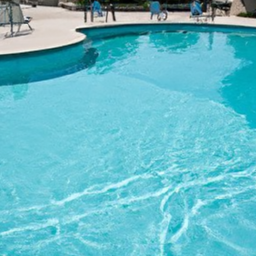Timeshares can be a fantastic way to enjoy vacations, with the opportunity to own a property for a specific period each year. However, understanding the financial obligations that come with timeshare ownership is crucial. One key aspect is the maintenance fees, which can sometimes leave people scratching their heads. So, how do maintenance fees work in a timeshare? Let’s delve into this topic and explore some common questions that often arise when it comes to understanding these fees.
Thank you for reading this post, additional resources can be found here, Everything About Timeshares
What Are Maintenance Fees?
Definition of maintenance fees
Maintenance fees are the regular charges that owners of timeshare properties are required to pay to cover the costs associated with the upkeep, repair, and management of the shared amenities and common areas of the property. These fees are typically assessed on an annual basis and are an essential component of owning a timeshare.
Purpose of maintenance fees
The primary purpose of maintenance fees is to ensure that the property remains in good condition and that the shared amenities are properly maintained for the enjoyment and use of all owners. These fees cover a wide range of expenses, such as landscaping, cleaning, utility bills, insurance, repairs, and management fees. By collecting these fees, the timeshare management company can effectively manage the property and provide a high standard of upkeep and service to all owners.
Determining Maintenance Fees
Factors affecting maintenance fees
Several factors impact the amount of maintenance fees for a timeshare property. These factors include the size and type of the unit, the location and quality of the property, the number of shared amenities, the demand for the property, and the overall cost of maintaining the property. Additionally, inflation and market conditions may also influence maintenance fees over time.
How fees are calculated
The calculation of maintenance fees typically involves a budgeting process conducted by the timeshare management company. The budget takes into account estimated expenses for the upcoming year, including regular maintenance, repairs, insurance, utilities, and other operational costs. The total estimated expenses are divided among the owners based on their respective ownership percentages or unit sizes.
Timeframes for fee determination
Maintenance fees are usually determined annually, although some properties may have different fee assessment periods, such as biennial or monthly. Property management companies will typically provide owners with advance notice about the upcoming fees, including the due dates and the amount owed. This allows owners to plan and budget accordingly for the payment of their maintenance fees.
Maintenance Fee Breakdown
Types of costs covered by maintenance fees
Maintenance fees encompass various costs associated with the ongoing operation and upkeep of a timeshare property. These costs may include property taxes, insurance premiums, utility bills, janitorial services, landscaping, pool and spa maintenance, repair and replacement of common area furniture and fixtures, security, and management fees.
Allocation of fees for different expenses
The maintenance fees collected from timeshare owners are distributed among the different expenses based on the property’s budget. The management company allocates specific amounts for each expense category, ensuring that funds are appropriately distributed to cover all necessary costs. Transparent reporting of expenses ensures that owners have visibility into how their maintenance fees are being utilized.
Transparent reporting of expenses
Timeshare management companies have an obligation to provide owners with detailed and transparent reporting of how maintenance fees are being used. This includes providing regular financial statements and annual reports that clearly outline the income and expenses related to the property. Transparency in reporting helps build trust and allows owners to understand how their fees contribute to the maintenance and operation of the timeshare property.
Variations in Maintenance Fees
Differences between properties
Maintenance fees can vary significantly between different timeshare properties. Factors such as the location, size, quality, and amenities of the property can influence the overall cost of maintenance. Properties situated in popular vacation destinations or with extensive facilities and services may have higher maintenance fees compared to less extravagant properties.
Variances based on ownership type
The type of ownership in a timeshare property can also influence the maintenance fees. Fixed weeks, floating weeks, and points-based systems may have different fee structures. Some ownership types may require the payment of additional fees for extras such as upgrades, reservation privileges, or external exchange programs. It is crucial for owners to understand their specific ownership structure to accurately anticipate and plan for maintenance fee obligations.
Seasonal fluctuations in fees
Maintenance fees can also fluctuate seasonally based on the property’s demand and seasonal expenses. For example, a timeshare property located in a ski resort may have higher fees during the winter months to cover the costs of snow removal, heating, and additional staffing. Understanding these seasonal variations in fees can help owners better manage their financial obligations.
Payment Frequency and Options
Annual, biennial, or monthly payment
Maintenance fees are typically charged on an annual basis, but some properties may offer different payment frequencies. Biennial (every two years) or monthly payment options may be available in certain cases. Property management companies will inform owners about the preferred payment schedule and provide instructions for making payments accordingly.
Methods of payment
Timeshare owners are usually provided with various methods of payment for their maintenance fees. Common payment options include check, credit card, direct debit, or online payment portals. Property management companies strive to offer convenient payment options to ensure a seamless and straightforward payment process for owners.
Consequences of late or non-payment
Failure to pay maintenance fees can have serious consequences for a timeshare owner. Property management companies typically have policies in place to address late or non-payment situations. If an owner fails to pay on time, they may be subject to penalties, interest charges, or even the risk of losing their ownership rights. It is essential for owners to prioritize timely payment of their maintenance fees to avoid any negative repercussions.
Special Assessments
Definition of special assessments
In addition to regular maintenance fees, timeshare owners may occasionally be required to pay special assessments. Special assessments are charges imposed by the management company to cover unexpected or substantial expenses that are not covered by the regular maintenance fee budget. These assessments are usually one-time fees that are distributed among the owners to prevent a financial burden falling solely on a few individuals.
Reasons for special assessments
Special assessments may be necessary to cover the costs of major repairs, renovations, or upgrades to the timeshare property. They may also be imposed to address unforeseen emergencies or to replenish reserve funds. The purpose of special assessments is to ensure that the property remains in good condition and can continue to provide a high-quality experience for all owners.
Implications for owners
Special assessments can have significant financial implications for owners. They often require owners to make an additional one-time payment, which can be challenging for some individuals to afford. It is crucial for owners to be aware of the possibility of special assessments and factor them into their budgeting and financial planning to avoid any undue financial strain.
Budgeting for Maintenance Fees
Importance of budgeting
Proper budgeting for maintenance fees is essential for timeshare owners. Understanding the annual cost of fees allows owners to plan accordingly and ensure they have sufficient funds set aside for the payment. By budgeting effectively, owners can avoid any financial stress or difficulties associated with meeting their maintenance fee obligations.
Predicting and planning for future fees
Owners should consider the potential for maintenance fee increases when budgeting for their timeshare ownership. Factors such as inflation, rising operational costs, or the need for major repairs or renovations can influence future maintenance fees. Staying informed about the property’s financial health and attending annual meetings can help owners anticipate and plan for any potential fee adjustments.
Utilizing fee escrow accounts
Some owners may choose to establish fee escrow accounts to help manage their maintenance fee payments. These accounts allow owners to contribute a portion of their maintenance fees each month, effectively setting money aside throughout the year. This can help alleviate the financial burden of paying a lump sum annually and provide owners with a consistent and manageable payment structure.
Changing or Modifying Maintenance Fees
Legal restrictions on fee modifications
Maintenance fees are subject to legal restrictions and regulations that vary depending on the jurisdiction and local laws. Property management companies must operate within the confines of these regulations when determining and modifying maintenance fees. It is crucial for owners to understand their rights and the legal framework governing maintenance fees to ensure fair and transparent fee assessments.
Procedures for modifying fees
If a timeshare property requires a fee modification, the property management company must follow specific procedures to enact the change. This typically involves providing advance notice to owners, providing a rationale for the fee adjustment, and offering opportunities for owners to provide input or appeal the decision. Clear communication and transparency are critical during the fee modification process to ensure owners have a clear understanding of the changes being made.
Owners’ rights and involvement
Timeshare owners have the right to receive information and participate in the decision-making process related to maintenance fees. Property management companies should provide owners with regular updates and financial statements, allowing them to understand the rationale for fee changes and providing opportunities for owners to provide input or express concerns. Open lines of communication and a transparent decision-making process can help maintain a positive relationship between owners and the management company.
Understanding the Benefits
Services and amenities covered by fees
Maintenance fees contribute to the provision of various services and amenities for timeshare owners. These may include cleaning services, security, landscaping, pool and spa maintenance, concierge services, and access to shared facilities, such as fitness centers, tennis courts, or clubhouses. By paying their maintenance fees, owners can access and enjoy these services and amenities, enhancing their overall vacation experience.
Maintenance and repairs
Maintenance fees also cover the costs associated with ongoing maintenance and repairs of the timeshare property. This includes regular inspections, preventative maintenance, repairs to common areas, and the replacement of fixtures or equipment. By properly maintaining the property, the management company ensures that owners can continue to enjoy a well-maintained and attractive vacation destination.
Value preservation and enhancement
Regular payment of maintenance fees helps preserve and enhance the value of a timeshare property. By allocating funds for ongoing maintenance, repairs, and upgrades, the property remains in good condition and retains its appeal and market value. This is beneficial to owners who may wish to sell their timeshare in the future or exchange it for vacations at other properties.
Resolving Disputes or Concerns
Common disputes related to maintenance fees
Disputes related to maintenance fees can arise between timeshare owners and property management companies. Common disputes may involve disagreements over the amount of fees assessed, the allocation of expenses, the quality of maintenance provided, or the transparency of financial reporting. It is important for owners and management companies to address and resolve these disputes promptly and amicably.
Methods of dispute resolution
To resolve disputes related to maintenance fees, timeshare owners and management companies can engage in various methods of dispute resolution. These may include open and constructive communication, mediation, or arbitration. These alternative dispute resolution methods aim to find mutually acceptable solutions and avoid costly and time-consuming legal actions.
Legal actions and implications
In extreme cases, unresolved disputes related to maintenance fees may result in legal actions. Timeshare owners who feel their rights have been violated or who have exhausted other dispute resolution methods may decide to pursue legal remedies. Legal actions can be expensive and time-consuming for both parties, and they should be considered as a last resort after exploring all other avenues for resolving the dispute.
In conclusion, maintenance fees are a crucial aspect of owning a timeshare property. They ensure the ongoing maintenance, repair, and management of the property, allowing owners to enjoy the shared amenities and preserve the value of their investment. By understanding how maintenance fees are determined, allocated, and utilized, owners can effectively budget for these expenses and actively participate in the decision-making processes related to fees. Communication, transparency, and proactive planning can contribute to a positive ownership experience and minimize disputes or concerns surrounding maintenance fees.








